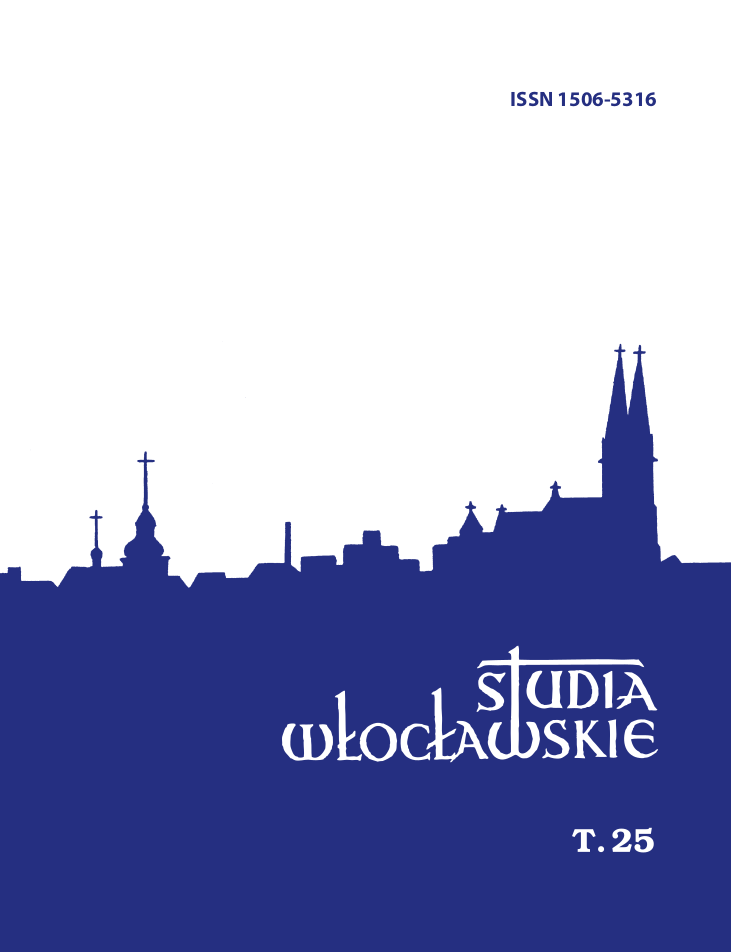The Ecumenical Credibility of Christianity
DOI:
https://doi.org/10.52404/ttnwloc.stwl.25.2Keywords:
credibility, ecumenism, dialogue, conversion of heart, testimony, prayer, liturgy, apostolate, Church, communityAbstract
The main purpose of this article is to emphasize the responsibility of all Christians for the Church, which by virtue of baptism is our common home. The awareness of this truth has a significant meaning in the confrontation of Christian Churches with the modern world, understood as the space for preaching the Word. It is about opposition from the world, which is distinctly marked by the still progressing process of de-Christianization. It leads, in turn, to an increase in secularization, to shaping a life without God, and often also to a conscious resignation of faith in God. Therefore, this confrontation requires the cooperation of the Churches in the field of evangelization, based on new zeal, new motivation, new ways of expressing the Gospel. The fulfillment of this postulate requires an ecclesial examination of conscience in the essential realm of questions: What can be done to make Christianity grow up to the ideal of a community that lives the Gospel? How to be a community that brings the meaning of life, which inspires to bear the fate and responsibility bravely and to express the human solidarity? How to be a community transmitting themes of hope? An attempt to answer the above questions is associated with the indication of the fundamental pillars that constitute the effectiveness of the mission of reconcilation the world with God. Their carrying capacity in relation to a specific historical and social reality depends on the ecumenical credibility of Christianity, which is characterized by a departure from the so-called "static credibility", limited only to the level of theoretical acceptance of ecumenism in favor of the listed practices, conditioning the effectiveness of ecumenical work.
Downloads
References
Sobór Watykański II, Konstytucje. Dekrety. Deklaracje (tekst łacińsko-polski), Poznań 1968.
Jan Paweł II, Encyklika Ut unum sint, 1995, Rzym 1995.
Katechizm Kościoła katolickiego, Poznań 1994.
Flik M., Z. Alszeghy, Il Vangelo Della grazia. Un trattato dogmatico, Firenze 1964.
Hemmerle K., Fastenhirtenbrief 1994, „Kirchenzeitung für das Bistum Aachen”, 49(1994), nr 8, s. 221–224.
Löwe H., Ich glaube die eine, heilige, christliche, katholische und apostolische Kirche, w: Communio Sanctorum. Einheit der Christen – Einheit der Kirche, Würzburg 1988, s. 380–397.
Metz J.B., Reform und Gegenreformation heute, Meinz 1969.
Moltmann J., Kirche in der Kraft des Geistes, München 1975.
Moltmann J., Theologie der Hoffnung, München 1968.
Rahner K., The Church of Sinners, „Cross Currentes”, 1(1951), s. 64–69.
Ratzinger J., L’ecclesiologia del Vaticano II, „Sabato”, 8(1985), s. 3–9.
Ratzinger J., Sól ziemi, Kraków 1997.
Speyr A. von, La Confessione, Milano 1977.
Speyr A. von, Il volto del Padre. Meditazioni teologiche, Brescia 1975.
Waldenfels H., Begegnung der Religionen, Theologische Versuche I, Bonn 1990.
Waldenfels H., O Bogu, Jezusie Chrystusie i Kościele dzisiaj. Teologia fundamentalna w kontekście czasów obecnych, Katowice 1993.
Wicks J., Kajetan Responds. A Leader In Reformation Controversy, Washington 1978.
Downloads
Published
How to Cite
Issue
Section
License
Copyright (c) 2024 Studia Włocławskie

This work is licensed under a Creative Commons Attribution 4.0 International License.




